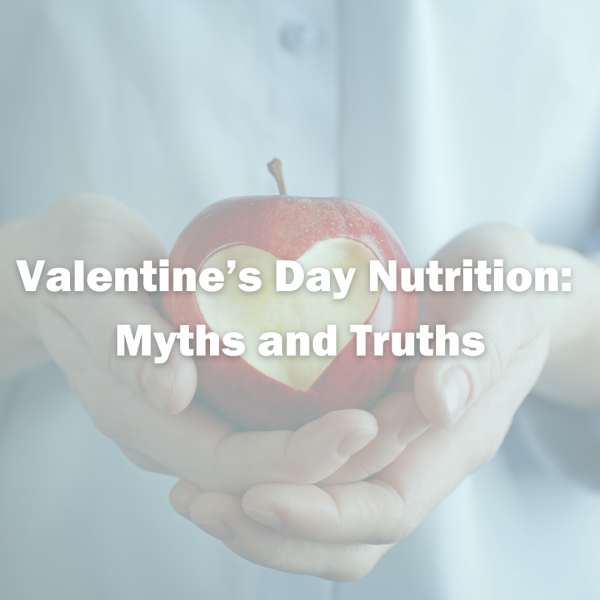 Valentine’s Day - the holiday of love and indulging in sugary, sweet treats. Whether you're treating yourself or someone special, there are plenty of ways to celebrate the season’s sweetness with nutrition in mind.
Valentine’s Day - the holiday of love and indulging in sugary, sweet treats. Whether you're treating yourself or someone special, there are plenty of ways to celebrate the season’s sweetness with nutrition in mind.
5 Facts About Sugar:
- Natural Sugars vs. Added Sugars. Not all sugars affect your body in the same way. Naturally occurring sugars in fruits and vegetables come with fiber, vitamins, and minerals, while added sugars in processed foods contribute empty calories and may spike your blood sugar levels. When you’re craving something sweet, opt for fruit to reap both flavor and nutrition.
- Sugar’s Role in Weight and Inflammation. Consuming too much sugar can lead to weight gain and increased inflammation, which are linked to long-term health risks such as heart disease and diabetes. To stay on track, enjoy sugar in moderation and prioritize whole, nutrient-dense foods that keep your energy levels stable.
- The Reality of the "Sugar Crash." After consuming sugary snacks, many people experience an energy dip. This is due to the rapid spike and fall in blood sugar levels. Instead of reaching for more sugar, try filling up on foods like whole grains and fruits, which provide steady energy throughout the day.
- Your Taste Buds Can Adjust to Less Sugar. Cutting back on sugar is possible, and your taste buds can adapt! Over time, you’ll start to enjoy the natural sweetness in fruits and vegetables. Reducing sugar gradually can help curb cravings and make healthier options more appealing.
- Not All Sweeteners Are the Same. Although artificial sweeteners may seem like a healthier alternative, they can have negative effects, such as bloating or cravings for more sugar. If you’re looking for a healthier option, natural sweeteners like stevia or monk fruit can provide sweetness without spiking your blood sugar.
Sugar Myths and Truths
-
Myth 1: Sugar-Free Products Are Always Healthy
Truth: Just because something is sugar-free doesn’t mean it’s healthy. Many sugar-free items still contain unhealthy fats, artificial sweeteners, and preservatives. Always check the nutrition label to understand what you're consuming. -
Myth 2: Sugar Causes Diabetes on Its Own
Truth: Sugar doesn’t directly cause diabetes, but a high intake of added sugars can contribute to insulin resistance, which is a key factor in developing type 2 diabetes. Focus on a balanced diet and limiting sugar to reduce your risk. -
Myth 3: All Sugars Are the Same
Truth: The sugar found in whole fruits is different from the added sugar in processed foods. Fruits provide fiber, vitamins, and antioxidants, which balance the impact of their natural sugars on your body. -
Myth 4: Honey and Agave Are Healthier Than Sugar
Truth: While honey and agave syrup are less processed than refined sugar, they still have a similar effect on blood sugar. Moderation is important with all types of sweeteners. -
Myth 5: Fruits Are Too Sugary and Should Be Avoided
Truth: Fruits are an excellent source of vitamins, fiber, and antioxidants, and their natural sugars are absorbed more slowly than the sugar in processed sweets. Enjoying fruit as part of a balanced diet is both healthy and satisfying.

